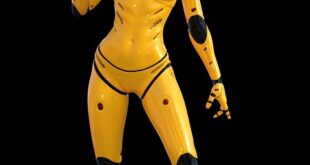The Future of Ethics: Unveiling the AI Dilemmas
Introduction
As technology continues to advance at an unprecedented pace, the rise of artificial intelligence (AI) deeply entwines itself with the realm of ethics. While the AI revolution brings remarkable opportunities for innovation and progress in various sectors, it inevitably raises critical ethical dilemmas that demand our attention. This article will explore the intriguing and thought-provoking AI dilemmas that lie ahead, urging us to reflect and foster responsible advancements in this rapidly evolving field.
Advancements and the Moral Implications
One of the major ethical debates surrounding AI centers around the duties and responsibilities programmed into AI systems. As these intricate algorithms become more autonomous and capable of decision-making, important questions arise. How does AI prioritize ethical values? Can machines comprehensively evaluate dilemmas based on complex ethical frameworks? These emerging technologies challenge us to determine how to instill moral intelligence into non-human entities. Striking a balance between technological development and preserving our deeply rooted human values becomes paramount.
Privacy and Security Concerns
The ever-growing capabilities of AI-driven personal assistants and data-driven algorithms raise significant privacy and security concerns. With the collection and analysis of colossal amounts of user data, the potential exists for abuse and breaches in confidentiality. Upsurges in surveillance capabilities bring forth debates over individual privacy rights and personal information security. It becomes our collective duty to safeguard against potential infringements and ensure that the development of AI does not compromise our fundamental rights and personal freedom.
Unanticipated Consequences & Unexpected Challenges
As AI continues its steady march forward, we must remain wary of the unanticipated consequences that may arise. We cannot predict future scenarios with absolute certainty, which raises dilemmas in themselves. If autonomous vehicles are to make split-second decisions, how should they be programmed to suitably react to unexpected ethical choices? Furthermore, ethical questions on liability emerge if AI generates incorrect results or leads to undesired outcomes. It is crucial for us to preemptively confront these dilemmas and ensure adaptive AI systems that can cope with the unpredictable nature of reality.
The Moral Responsibility of Developers
With great power comes great responsibility – an adage certainly applicable to AI developers. It is the duty of technologists and researchers to prioritize ethics in their work, embedding principles such as transparency, fairness, and accountability into the design and deployment of AI systems. By adopting ethical frameworks and open dialogue with various stakeholders, designers can collectively navigate the unexplored frontiers of AI and minimize unintended ethical quandaries. Collaboration among researchers, ethicists, policymakers, and AI experts is crucial for a sustainable and ethically sound AI ecosystem.
Conclusion
The future of ethics is becoming increasingly entangled with AI, bringing forth complex dilemmas unlike any faced before. Navigating these challenges necessitates incorporating moral intelligence into artificial entities, safeguarding privacy rights, and preparing for unanticipated consequences. The profound integration of AI in our lives necessitates a collective effort to address the ethical questions that arise. By embracing responsible AI advancements, we can shape a future we desire, ensuring that technology reflects our values. Let us embark on this journey guided by a celebration of innovation and the realization of ethical principles.
 Mind Uncharted Explore. Discover. Learn.
Mind Uncharted Explore. Discover. Learn.


